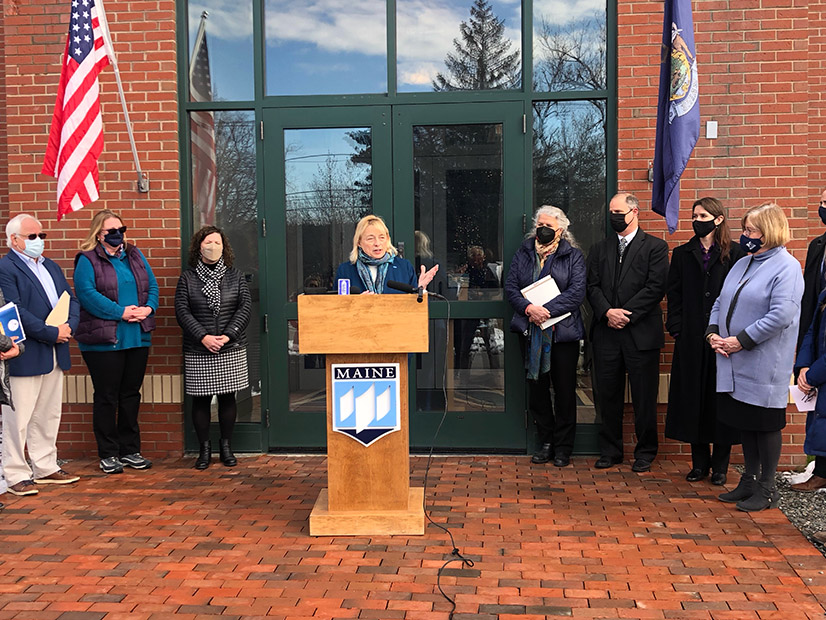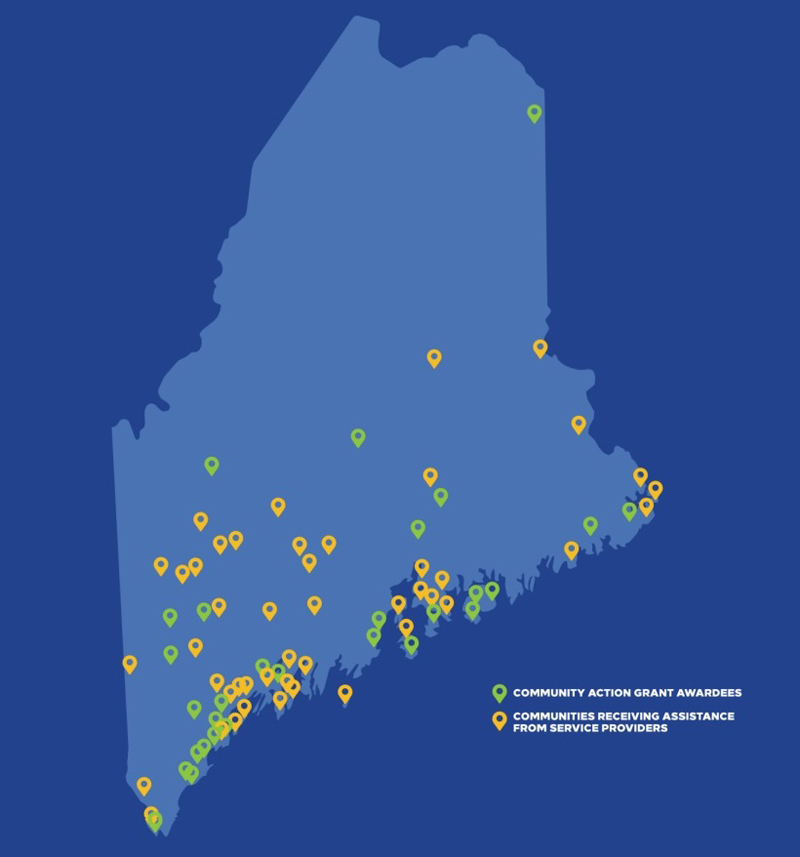
Maine’s Community Resilience Partnership (CRP) will open a new grant round next month to help communities reduce carbon emissions, develop clean energy and build climate resilience.
The funding is “the heart” of the Maine Climate Council’s work, Hannah Pingree, director of the Governor’s Office of Policy Innovation and the Future (GOPIF), said during the council’s quarterly meeting Thursday.
 A map demonstrating the geographic diversity of climate-related community grants awarded by Maine’s Community Resilience Partnership in April | Maine Community Resilience Partnership
A map demonstrating the geographic diversity of climate-related community grants awarded by Maine’s Community Resilience Partnership in April | Maine Community Resilience Partnership“The actions that communities can take [with the funding] are almost all the actions of the state’s climate action plan, so we’re asking communities to consider anything that they would prioritize as the most important thing to them, and the state is finding ways to help,” she said.
Maine Gov. Janet Mills launched the CRP in December with an initial $4.75 million in grants that are being administered through three award rounds.
Funding for the program is part of the state’s general fund, and additional grants will likely become available beyond the first three rounds, Brian Ambrette, senior climate resilience coordinator at the GOPIF, said during the meeting. Ambrette expects that the CRP will initiate the third round by next spring.
Community grants are available for greenhouse gas emissions-reducing projects related to electric vehicle infrastructure, clean heating and cooling for buildings, clean energy codes, renewable energy permitting and ordinances, green power purchases, renewable energy facility deployment, and emissions tracking.
On April 22, the partnership awarded $2.5 million in grants that support communities directly through project funding and indirectly through service provider and regional coordinator funding. Awardees received $500,000 for projects that will help reduce GHG emissions.
The projects include:
-
-
- electrifying the transportation network in Bangor;
- installing public EV chargers in Bar Harbor, Mount Desert, Tremont and Carrabassett Valley;
- purchasing an electric school bus in Bridgton;
- purchasing a solar array in Limestone;
- tracking GHG emissions in Orono and Windham; and
- installing heat pumps in certain town buildings in Waterford.
-
Additional awards from the first round will help 12 service providers work with 46 communities to enroll in the CRP and apply for grants in the next rounds, Ambrette said.
“We’re looking forward to communities building some best practices and having some lessons learned that they can share once their grants are concluded,” he said.
To help educate communities about options for reducing emissions and building resilience, the Climate Council will host its first conference on June 17 in Augusta.
Representatives of communities that are already taking climate action will share “practical tips and insights” with attendees for initiating climate-related projects and making investments that reduce building and transportation emissions, said Sarah Curran, deputy director of climate planning and community partnerships at the GOPIF.
The council will release additional registration, speaker and program details this week.


